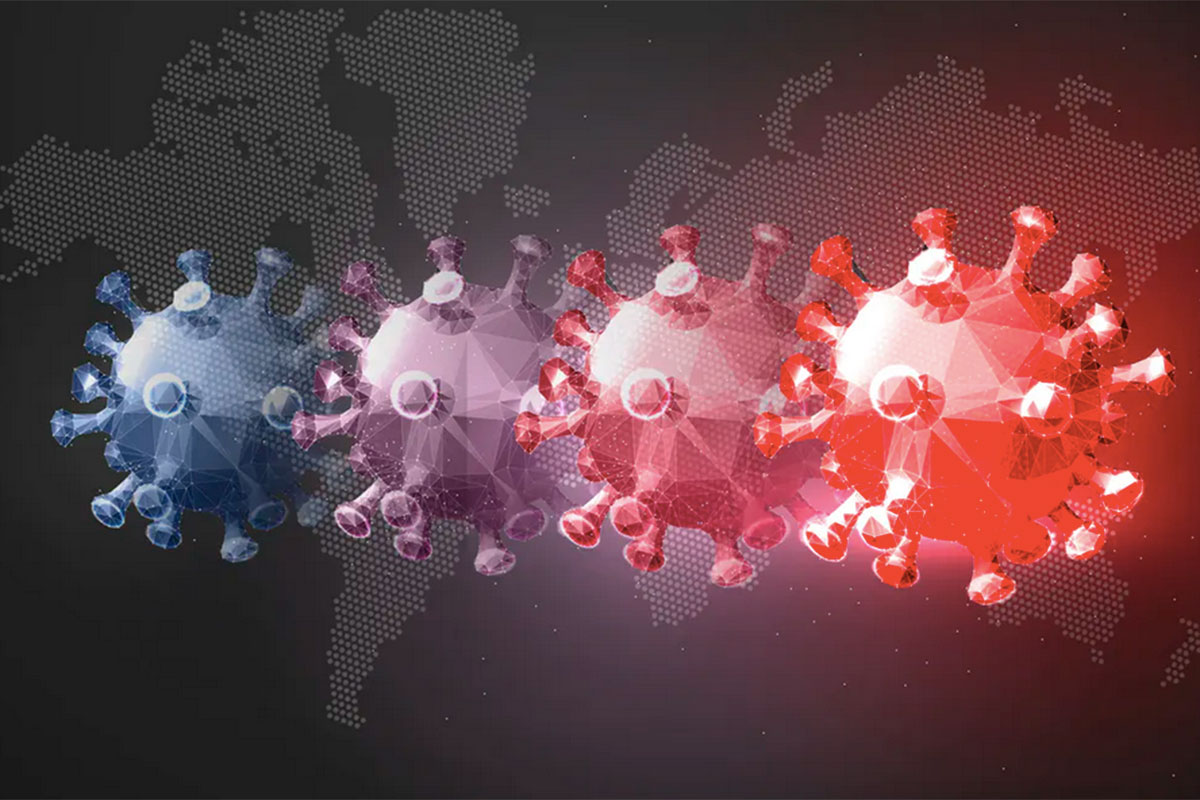
The emergence of variants of concern in late 2020 marked a shift in the COVID-19 pandemic. // Image from Shutterstock
Top Conversation Canada stories of 2021
The UM community contributed some big stories to The Conversation Canada in 2021 and we’ve collected some of the biggest. All of these stories were first published on Conversation Canada and then republished on UM Today.
COVID-19 Delta variant in Canada: FAQ on origins, hotspots and vaccine protection
Before Omicron, the Delta variant was making headlines across the world, raising questions about its origin, transmissibility, hotspots and potential for vaccine resistance. Our own Jason Kindrachuk, assistant professor/Canada Research Chair in emerging viruses and Souradet Shaw, assistant professor, Canada Research Chair in Program Science and Global Public Health, shared their expertise to help answer some of those questions.
Truth before reconciliation: 8 ways to identify and confront Residential School denialism
In its 2015 final report, the Truth and Reconciliation Commission was clear: “Without truth … there can be no genuine reconciliation.” The problem, the commissioners explained, is that “too many Canadians know little or nothing about the deep historical roots” of the ongoing issues stemming from settler colonialism generally and residential schooling specifically.
Embracing truth is all the more difficult for some because many Canadians still associate residential schooling with the positive images church and state officials used to propagandize and promote these institutions as humanitarian projects.
Such “positive” framings of residential schools justify ongoing colonial policy approaches that continue to harm Indigenous Peoples today.
This article provided proactive ways to identify and confront that denialism.
How Uber drivers avoided — and contributed to — the fate of taxi drivers
Countries around the world are wrestling with whether to classify Uber drivers and other gig economy workers as independent contractors or employees.
But when Uber first came on the scene, the primary subject of debate was whether its drivers were, in fact, taxi drivers. Why was this ride-sharing or ride-hailing app run by a tech firm also applying to be a taxi company? Was Uber truly “the same as a taxi, but different?”
This article explored the issue of how two groups of people doing the same work every day — driving other people to their desired destinations — are perceived so differently.
Gluten-free diet is expensive, socially challenging for those with celiac disease and wheat allergy
There are many reasons why someone would follow a gluten-free diet. People who have a gluten-related disorder such as the autoimmune condition celiac disease, non-celiac gluten sensitivity or wheat allergy have no option but to completely exclude gluten in their diet.
Avoiding gluten is vital to manage symptoms, which can include gastrointestinal distress, and to prevent adverse health outcomes. In the case of celiac disease these outcomes can include serious health issues such as nutritional deficiencies, weak bones and infertility.
As noted in this article, given the presence of gluten in common foods, adhering to a gluten-free diet is expensive, challenging and linked to nutritional inadequacies.
As an Indigenous doctor, I see the legacy of residential schools and ongoing racism in today’s health care
In this article, Dr. Marcia Anderson, assistant professor in the Rady Faculty of Health Sciences, discussed how anger and grief from incidents of systematic racism has shaped her career — providing powerful fuel to lead change even when, and especially when, there is resistance to that change.
5 things to watch for in the latest IPCC report on climate science
On Aug. 9, the Intergovernmental Panel on Climate Change (IPCC) was set to release its most comprehensive report on the science of climate change since 2013. It was the first of four reports released under the IPCC’s latest assessment cycle, with subsequent reports coming in 2022. Alex Crawford, research associate at the Centre for Earth Observation Science, Clayton H. Riddell Faculty of Environment, Earth, and Resources, shared 5 important things to watch for.
Should bilingualism change in Canada? The debate over Gov. Gen. Mary Simon
The appointment of Inuk leader Mary Simon as Canada’s Governor General caused a stir due to her lack of French, cracking open a larger discussion about which languages “count” in Canada, and who gets to be the “right” kind of bilingual. This piece from Nicole Rosen, professor and Canada Research Chair in Language Interactions, explored the issue.
How do I get my research published by Conversation Canada?
Faculty, graduate students and postdoctoral fellows can learn more and signup to write an article about their research here.
Conversation Canada is an independent source of news and views, from the academic and research community in Canada, delivered direct to the public. UM is a founding member. A team of professional editors work with experts to unlock their knowledge for use by the wider public.
Research at the University of Manitoba is partially supported by funding from the Government of Canada Research Support Fund.






